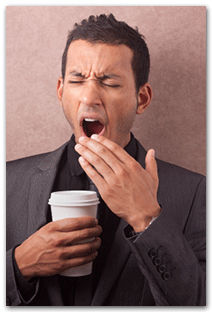Hi everyone!
Obstructive sleep apnea (OSA) is a breathing disorder in which breathing is briefly and repeatedly interrupted during sleep. These episodes are called apneas (literally, “without breath”) and last at least nine seconds. Some people have episodes of hypopnea, which means breathing that is partially (but substantially) obstructed.
OSA most often occurs when the airway muscles fail to keep the airway open during sleep. Most people who suffer from sleep apnea don’t know it. According to the World Health Organization approximately 100 million people worldwide have OSA. In the United States, OSA is estimated to affect 1 in 4 men and 1 in 9 women; and affects 23 million working adults.
It’s the Quality of Sleep You’re Getting
Do you feel exhausted when you wake up? How about half through your day? Can’t wait for a cup of joe in the afternoon? Are you hungrier than usual? Feeling more stressed than usual? Are you more forgetful lately? It may be the quality of sleep you’re getting. Generally, it’s a partner or loved one that brings attention to the possibility of the condition because they can’t sleep through the snoring. Sleep apnea can range from mild (5-14 events per hour) to severe (greater than 30 apneas per hour), but sometimes people go through their whole lives without knowing they have it.
But one major indication that you may have sleep apnea may come from your dental history or a dental exam. Recent research presented at the scientific assembly of the American College of Chest Physicians (ACCP), reveal 1 in 4 patients with obstructive sleep apnea suffer from bruxism or teeth grinding. Teeth grinding creates some obvious signs on teeth, such as wear facets, notches near the gum called “abfractions”, and even bony growths on the gums called tori or exostoses.
How is Sleep Apnea Connected to Teeth Grinding?
Obstructive sleep apnea occurs when the jaw or tongue falls back during sleep and the muscles of the airway relax causing airway collapses and obstructed breathing. With air forcing its way through an obstructed path, snoring may start. The brain senses that your breathing is compromised, and rouses from the deepest stages of sleep to reopen the airway. This occurs in a continuous cycle anywhere from 5 to as many as 100 times an hour. The end result is that you wake up exhausted, and the worst part is that your body needs the deepest stages of sleep to repair itself. Tissue damage accumulated over time could lead to depression, higher blood pressure, weight gain and diabetes.
One way the brain tries to reopen the airway is through the grinding and clenching of teeth. This is why a dental screening is so important. If you awake in the morning exhausted with achy jaw muscles, ear aches, and sensitive teeth you need to see your dentist to not only relieve the pain but to check to see if sleep apnea is the problem. For more information about sleep apnea check out my website page, https://lakeviewdentist.com/sleep-apnea.html . I have had advanced training in sleep dentistry so if you are curious about OSA (Obstructive Sleep Apnea) and your teeth feel free to contact my Southfield Dental Office at 248-356-8790 and schedule a complementary consultation with me.
Thanks for reading,
Mark W Langberg, DDS, MAGD
